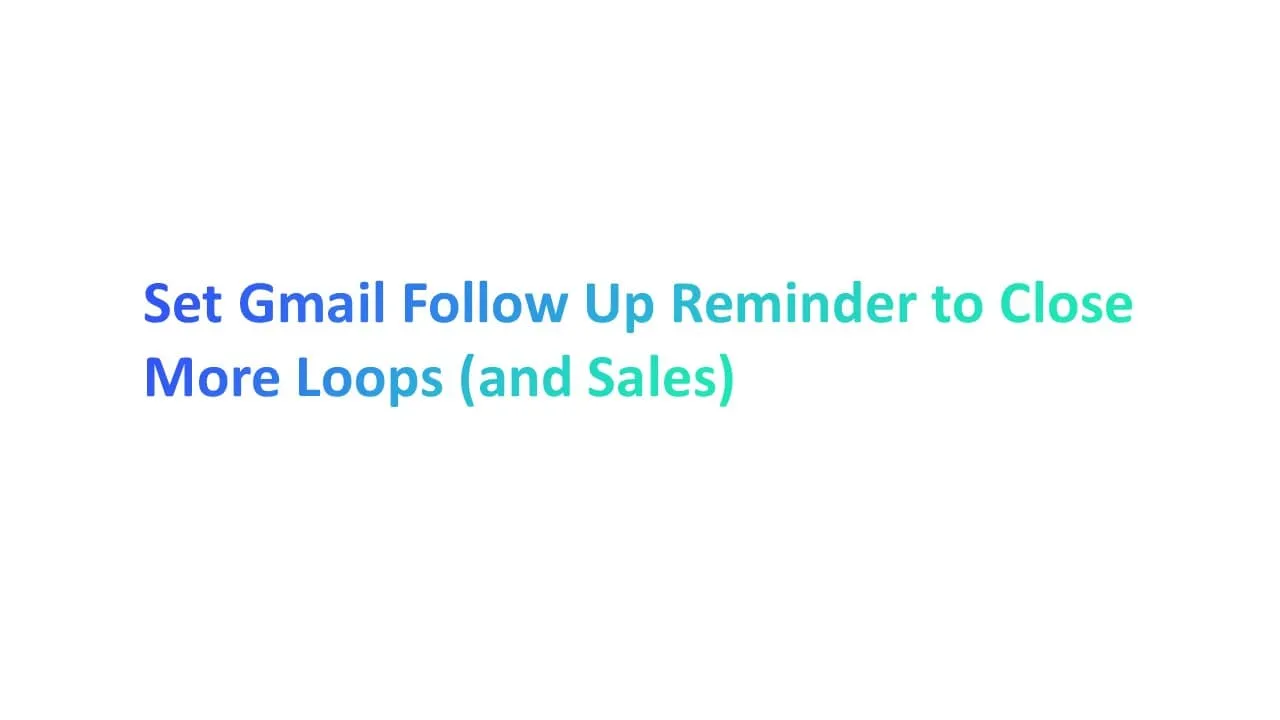If you're looking to take your sales game to the next level, reading sales books should be at the top of your to-do list. Sales books are an excellent source of knowledge from experienced professionals for both beginners and seasoned salespeople. In this article, we've compiled a list of the 10 best sales books that can help you reach your goals and drive success in your sales career.
Why Reading Sales Books is Essential for Success
The sales profession is one of the most dynamic and challenging fields out there. It requires a combination of skills, knowledge, and experience to succeed. The best salespeople are always looking for ways to improve their craft, and reading sales books is an excellent way to do just that.
Enhance Your Sales Skills
One of the most significant advantages of reading sales books is that they can help you enhance your sales skills. Sales books offer insightful tips on how to handle difficult clients, close big deals, and improve your sales pitch. When you read these books, you can improve your sales techniques, build rapport, and develop better customer relationships.
For example, you might learn about the importance of active listening, how to ask the right questions, or how to negotiate effectively. You might also discover new ways to create value for your customers or how to use social media to generate leads. All of these skills can help you become a more effective salesperson and increase your chances of success.
Stay Updated on Industry Trends
The market is ever-changing, and keeping up with industry trends can significantly impact your sales figures. Reading current sales literature and keeping yourself informed can help you stay ahead of the competition. You can learn about trends that affect your target audience and how to adapt your sales strategies to stay relevant and effective.
For instance, you might learn about the latest technological advancements that are transforming the sales landscape, such as artificial intelligence or virtual reality. You might also discover new ways to use data analytics to identify customer needs and preferences or how to leverage social media to engage with prospects. By staying up-to-date on industry trends, you can position yourself as a thought leader and a valuable resource for your clients.
Learn from the Experts
Sales professionals spend years honing their craft and gaining valuable insights into what works and what doesn't. Sales books are a great opportunity to learn from experts who have already made their mistakes and found success with innovative approaches. Reading books by pioneers in the industry can give you a better understanding of your profession, insights into conquering common challenges, and success strategies for handling obstacles.
For example, you might read a book by a sales expert who has decades of experience in your industry. They might share their personal journey, including the mistakes they made along the way and the lessons they learned. They might also offer practical advice on how to overcome common sales obstacles, such as objections or price negotiations. By learning from the experts, you can avoid common pitfalls and accelerate your path to success.
In conclusion, reading sales books is essential for anyone who wants to succeed in the sales profession. By enhancing your sales skills, staying updated on industry trends, and learning from the experts, you can become a more effective salesperson and achieve your goals.
Top 10 Sales Books to Boost Your Performance
Are you looking to improve your sales skills? Whether you're a seasoned sales professional or just starting out, these top 10 sales books are sure to provide you with the knowledge and tools you need to succeed.
1. "The Challenger Sale" by Matthew Dixon and Brent Adamson
Traditional sales approaches may no longer be enough to secure a deal in today's market. "The Challenger Sale" challenges this notion by suggesting that sales reps must adapt and educate customers to go beyond their current thinking. By doing so, reps can achieve higher win rates and increased sales success. This book is a must-read for anyone looking to improve their sales approach.
2. "Influence: The Psychology of Persuasion" by Robert Cialdini
If you want to close more deals, you need to understand the key psychological principles that influence people. "Influence" provides an in-depth look at how to wield power and influence prospects by using social proof, scarcity, and other factors. This book is a must-read for anyone looking to improve their persuasion skills.
3. "To Sell is Human" by Daniel H. Pink
Everyone is in sales, whether they realize it or not. "To Sell is Human" outlines an approach that's particularly useful for non-salespeople. The book provides innovative approaches for building relationships, persuasion, and negotiating deals to help you succeed, even if you're not a seasoned sales professional.
4. "SPIN Selling" by Neil Rackham
If you're struggling to identify the specific needs of a prospect in order to secure the sale, "SPIN Selling" can help. This book teaches you Question-Based Selling, an innovative approach that helps to identify the specific needs of a prospect in order to secure the sale. The acronym stands for Situation, Problem, Implication, and Needs-Payoff, and it's an effective technique for qualifying leads and closing deals.
5. "The Little Red Book of Selling" by Jeffrey Gitomer
If you're new to sales, "The Little Red Book of Selling" is a great entry-level book to check out. This book covers fundamental concepts such as developing a strong commitment and closing sales. You'll find practical advice, stories that illustrate the points, and tips for improving your selling skills.
6. "Fanatical Prospecting" by Jeb Blount
Prospecting isn't everyone's job, and if you're struggling to identify quality leads, "Fanatical Prospecting" offers tools that help overcome common obstacles. The book provides innovative solutions to help you get results and practical advice to overcome obstacles such as call reluctance, reaching unresponsive leads, and how best to develop a sales funnel.
7. "The Ultimate Sales Machine" by Chet Holmes
"The Ultimate Sales Machine" offers a comprehensive strategy for optimizing sales processes, refining lead generation, and scaling your sales operations using various techniques such as time management and hiring strategies. Holmes emphasizes the importance of a disciplined, systematic approach to build a successful sales team and drive results.
8. "New Sales. Simplified." by Mike Weinberg
Keeping up with the pace of change in sales requires constant adaptation. "New Sales. Simplified." arms sales reps with the necessary tools and techniques for leading sales conversations effectively. The book combines proven methods for effective prospecting, negotiating, and closing deals.
9. "Gap Selling" by Keenan
"Gap Selling" provides an innovative approach that revolves around identifying gaps in prospects' pain points and needs. Keenan offers practical advice on measuring quality opportunities and offers advice on strategies that can substantially increase your sales statistics. This book is a must-read for anyone looking to improve their sales process.
10. "The Sales Acceleration Formula" by Mark Roberge
If you're looking for a data-driven approach to sales, "The Sales Acceleration Formula" is the book for you. Mark Roberge offers a scientific approach that's led to significant results for his team. The book offers practical insights on everything from how to develop a recruitment plan to developing a training strategy and a framework for the sales team to succeed.
So there you have it, the top 10 sales books to boost your performance. Whether you're looking to improve your persuasion skills, refine your sales process, or develop a data-driven approach, these books are sure to provide you with the knowledge and tools you need to succeed. Happy reading!
How to Choose the Right Sales Book for You
As a salesperson, it's essential to continually improve your skills and knowledge to stay ahead of the competition. One way to do this is by reading sales books. However, with so many options available, it can be challenging to know which book is right for you. Here are some tips to help you choose the perfect sales book:
Identify Your Strengths and Weaknesses
When choosing a sales book, it's crucial to think about the areas in which you excel and the areas you tend to struggle. For instance, if you're finding it difficult to land new prospects, "Fanatical Prospecting" might be the book for you. This book provides practical tips and techniques for finding and engaging with potential customers.
On the other hand, if you're looking to build stronger relationships with your clients, "The Challenger Sale" might be a better fit. This book focuses on the importance of challenging clients' preconceived notions and providing valuable insights to help them make informed decisions.
Identifying your strengths and weaknesses can help you find a book with the right advice for your unique situation. It's essential to be honest with yourself about your strengths and weaknesses to get the most out of the book you choose.
Consider Your Industry and Target Audience
Sales techniques vary from industry to industry, and your prospects likely fall into a particular target audience. Before picking up a book, take some time to research what works in your field and what is appealing to the particular segment of the market you serve.
For example, if you work in the software industry, you might want to read "The SaaS Sales Method" by Jacco van der Kooij. This book provides a step-by-step guide to selling software as a service and is packed with real-world examples and practical advice.
The right book will provide you with the specifics you need to succeed and help you better understand the audience you're targeting. This understanding can help you tailor your approach and increase your chances of success.
Seek Recommendations from Successful Salespeople
One of the best ways to find a great sales book is to seek recommendations from successful salespeople. Think of salespeople you admire and respect. What books are they reading, and why?
Reach out to these individuals and ask for their top recommendations, or ask around your professional network to see what other successful salespeople have read and recommend. Taking this approach is an excellent way to find new and effective sales books that work for you.
In conclusion, choosing the right sales book is essential for your success as a salesperson. By identifying your strengths and weaknesses, considering your industry and target audience, and seeking recommendations from successful salespeople, you can find a book that provides you with the knowledge and skills you need to take your sales game to the next level.
Implementing the Lessons from Sales Books
Sales is an ever-evolving industry, and staying ahead of the curve requires continuous learning and adaptation. One of the most effective ways to improve your sales skills is by reading sales books. These books offer valuable insights and techniques that can help you close more deals, build stronger relationships with customers, and ultimately grow your business. However, reading a sales book is just the first step. To truly benefit from the lessons you've learned, you need to implement them into your daily sales work.
Set Realistic Goals
After reading a sales book, it's important to set some realistic goals for yourself. Take some time to reflect on what you've learned and identify what new skills you want to develop or what techniques you want to implement. These goals should be challenging yet achievable, and they should propel you toward your larger sales goals. Set measurable targets, tie your results to specific benchmarks, and track your progress as you go. This will help you stay focused and motivated as you work to improve your sales skills.
For example, if you've just finished reading a book on cold calling, you might set a goal to make 20 cold calls per day for the next month. You could track your progress by keeping a log of each call and noting the outcome (e.g., connected with decision-maker, left voicemail, etc.). This would allow you to see how many calls it takes to get a positive result and adjust your approach accordingly.
Practice New Techniques Regularly
Implementing the lessons you've learned in your daily sales work is crucial to improving your skills. Use your newly acquired knowledge to change up your approach, try new techniques, and develop a new sales strategy that works for you. Give yourself plenty of opportunities to practice and implement the new techniques until they feel like a natural part of your sales approach.
For example, if you've just learned a new closing technique, try it out on your next sales call. Take note of how it feels to use the technique and what kind of response you get from the customer. Then, try it again on your next call and see if you can refine your approach. The more you practice, the more confident you'll become in your new skills.
Track Your Progress and Adjust Accordingly
Tracking your progress is vital to improving the effectiveness of your techniques. Set some benchmarks, track your progress, and analyze what's working and what's not. Remember that you may need to modify your approach as the market or industry changes, and be prepared to pivot your approach if your results aren't meeting your expectations.
For example, if you've been using a new sales strategy for a few weeks and you're not seeing the results you hoped for, it may be time to reevaluate your approach. Look at your data and try to identify where things are going wrong. Are you targeting the wrong audience? Is your messaging unclear? Once you've identified the problem, adjust your approach and try again.
Implementing the lessons from sales books takes time and effort, but the payoff can be significant. By setting realistic goals, practicing new techniques regularly, and tracking your progress, you can improve your sales skills and achieve greater success in your career.
The Long-Term Benefits of Reading Sales Books
Reading sales books is an excellent way to facilitate growth in your career. Whether you're a seasoned sales professional or just starting, ongoing learning and updating your knowledge base can help you stay ahead of the competition and provide a more comprehensive view of prospects.
Continuous Learning and Improvement
One of the most significant benefits of reading sales books is the opportunity for continuous learning and improvement. Sales is an ever-changing field, and staying up to date with the latest trends and techniques can help you remain competitive and relevant. By reading sales books, you can gain insights and strategies from experienced sales professionals who have been successful in the industry.
Moreover, reading sales books can provide you with a fresh perspective on your work. You may discover new ways to approach your sales pitches, handle objections, or close deals. The key is to put what you've learned into practice and ensure that you're continually developing your skills.
Increased Confidence and Motivation
As you develop your sales skills through reading sales books, you'll likely feel more confident in front of prospects. With greater confidence comes a stronger sales image, more convincing pitches, and a more profound belief in what you're selling. You'll be better equipped to handle objections and answer questions, leading to increased trust and rapport with your prospects.
Confidence also leads to increased motivation, which can help you achieve your sales goals more quickly and effectively. When you believe in your abilities, you're more likely to put in the effort required to succeed. You'll be more willing to take risks, try new approaches, and push yourself to new heights.
Building a Successful Sales Career
Ultimately, reading sales books can lead to a rewarding and fulfilling career in sales. Adopting innovative techniques and incorporating ongoing learning can be the key to your success. Take the time to read the sales books that align with your goals and interests, and incorporate their lessons into your daily work to achieve better results.
By consuming as much sales literature as possible, you'll continue to find unique and innovative approaches that deliver the results you're looking for. You'll learn from the successes and failures of others, gaining valuable insights that can help you avoid common pitfalls and capitalize on opportunities.
In conclusion, reading sales books is an excellent way to stay ahead of the competition, develop your skills, and build a successful sales career. By continuously learning and improving, increasing your confidence and motivation, and adopting innovative techniques, you can achieve your sales goals and reach new heights of success.








